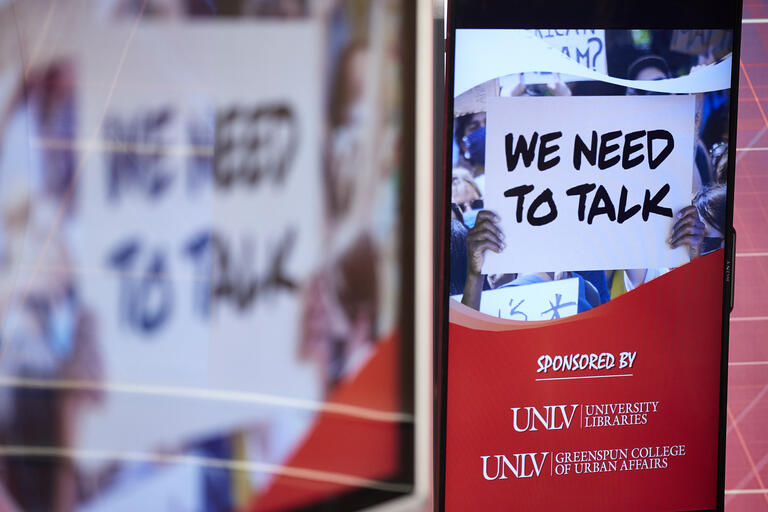Dr. Laura Culley, associate dean for health policy and community affairs, envisions the new UNLV School of Medicine as a community hub ‒ a place where people can come together and connect with other service and medical providers to address community-related issues.
“There are many agencies in the Las Vegas community that are doing wonderful things for the community, such as addressing the issues of addiction and homelessness,” she said. “Often, these agencies are unaware of other local agencies working to address the same issues. It can be difficult to find updated lists of resource providers for the community to access, and connecting local agencies with each other.”

The UNLV School of Medicine will welcome its first class in 2017 but has already been working to enhance collaboration and networking among community groups. The school has sponsored monthly luncheons, inviting community leaders to come together around a particular issue of social responsibility, such as the obesity epidemic or homelessness. Collaborations from these luncheons led to expansion of the community-based health center at the West Preparatory Academy, a public school in Las Vegas serving grades K-12. Another conversation fostered a group effort to design integrated, linked programs for human trafficking victims, providing all resources needed for recovery and a return to stable lives.
“Being a physician is a social responsibility,” Culley said. “It’s a gift to get the training, to see how the body works, to learn how to improve the quality of life and how to save lives. And with that gift comes a responsibility to help people.”
Developing this sense of social responsibility can start even before students enter medical school. Culley teamed up with UNLV and Nevada State College administrators to establish the Health Improves Together (HIT) initiative so undergraduates could learn first hand what patients experience at Southern Nevada medical clinics. The program expanded this summer and serves as a precursor to the type of community activities UNLV School of Medicine students will engage in throughout their four years of training:
- Emergency Medical Technician (EMT) certification — All students are required to become certified as emergency medical technicians, enabling them to participate in EMT calls after certification and gain direct knowledge of the medical and social issues faced by the community.
- Community walkabouts and assessment — Students will go out in small teams to high-risk communities to see firsthand what factors in these communities can lead to emergency medical issues.
- Community service — Throughout their first three years of training, students will volunteer at a community agency or program for a set number of hours each month. Later, this involvement grows to a more intensive month long, 14 hour-per-week service integrated with community health concepts.
- Medical care for special populations — Students will learn about and observe how medical care is provided in clinics that treat special populations, such as military veterans, prison inmates, the homeless, dying children and adults, developmentally challenged children, and rape victims.
- Community-based research project — Each student is required to do a scholarly research project, such as factors that contribute to obesity in a population. The research project may involve gathering pertinent data and developing a proposed solution to specific community problems.



